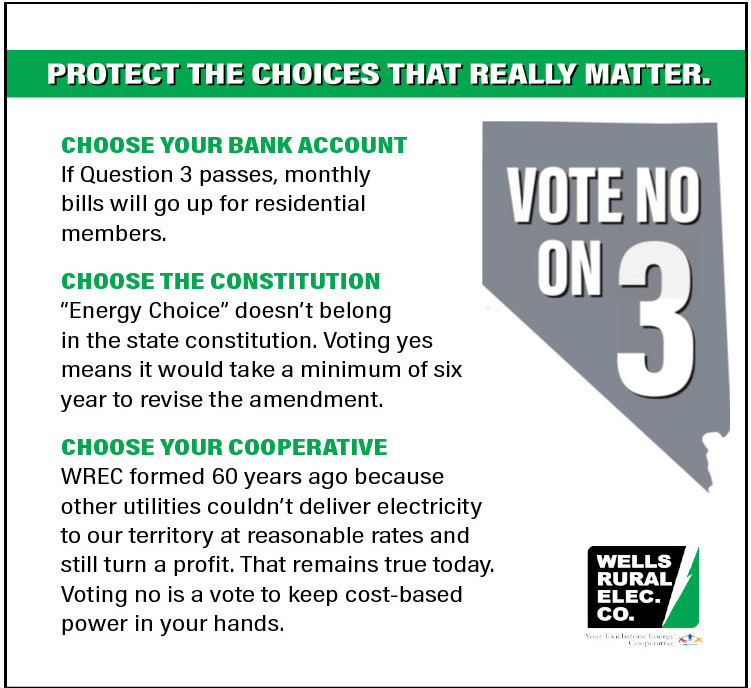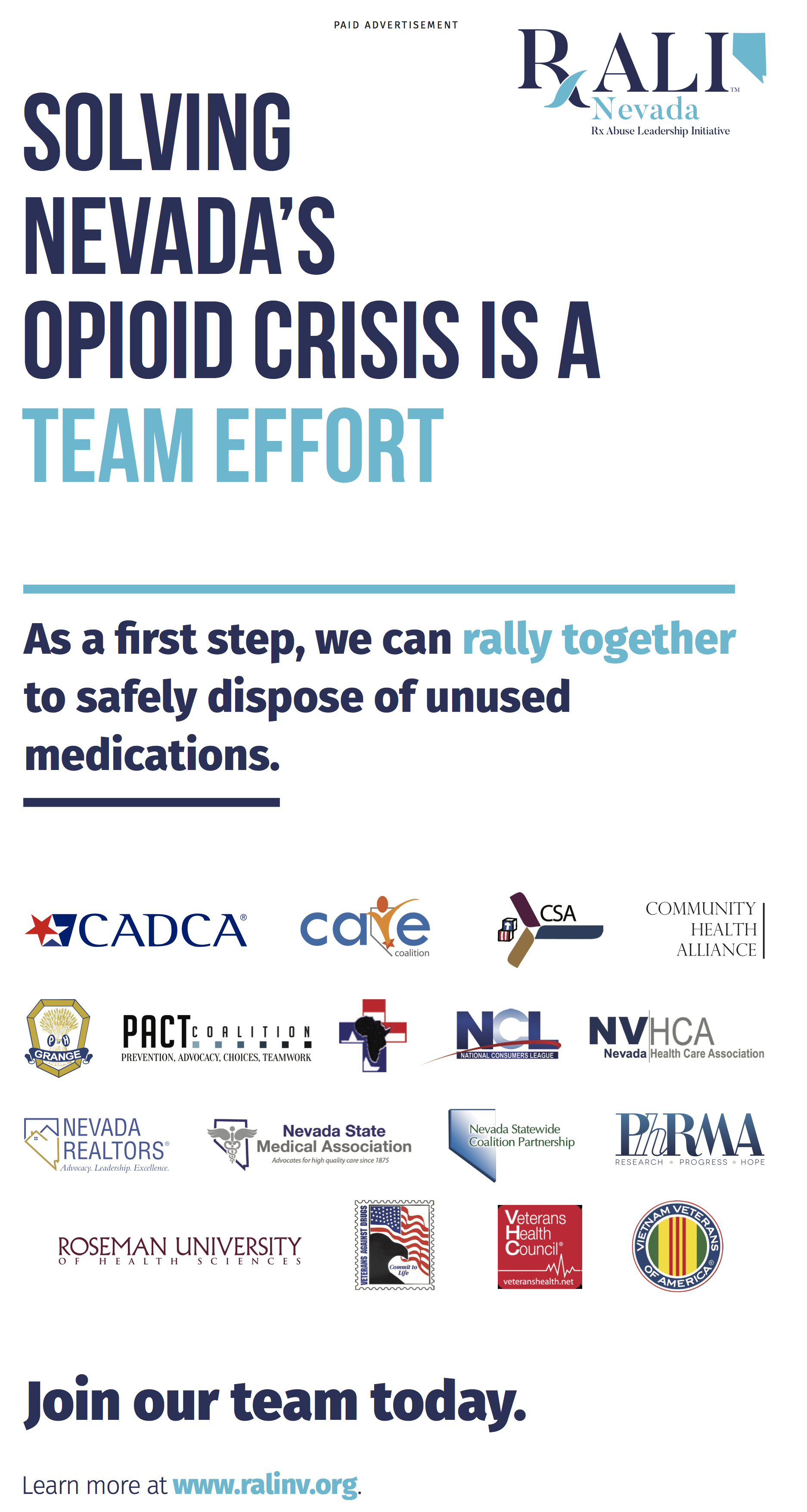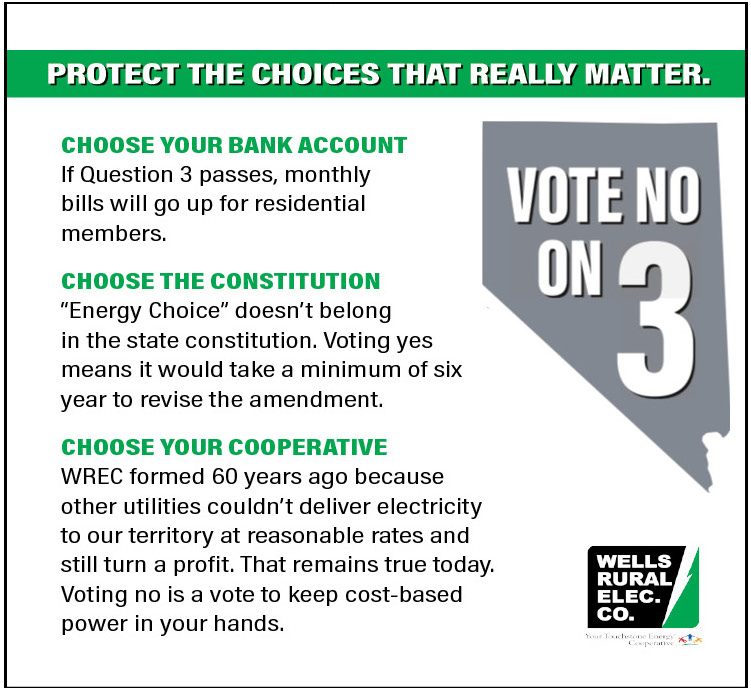
Dear Editor,
Imagine buying a car but you don’t know the price. You don’t know who will build the car, who’s selling it or how it will get to your home. You don’t know the interest rate or where to make payments. It’s possible that you will have to split your payment between two companies. You don’t know who will help you if there is a problem. You’ve been assured that it will all work out but no one is willing to guarantee that the cost won’t increase after you sign the contract. You do know, that if you accept the offer, you will be locked-in for a minimum of six years, and perhaps much longer.
Unfortunately, this scenario isn’t about buying a car; it’s about buying electricity, a product that most of us use every minute of every day. When you cast your ballot in the 2018 General Election, you will decide whether or not to accept this risky and costly proposal.
Question 3 attempts to address several issues that are important not only to Nevada, but to the nation. Those issues include incorporating clean energy generation, consumer protections, rate fairness, self-generation, energy supply and pricing, and the role of legislative and regulatory bodies. These are not simple issues and there are no simple answers. As is often the case, the best solution is likely a compromise. Finding workable compromises is the heart of the legislative process.
The title of a recent editorial by Thomas Mitchell posed the most important question underlying the Energy Choice Initiative: “Can Nevada lawmakers correctly introduce energy choice?” Mitchell cited a report from the nonprofit, bipartisan Guinn Center when he noted that, “The report indicates the success or failure of Question 3 depends on how lawmakers write the rules.” Despite my tremendous respect for the diligent women and men who serve the citizens of Nevada in the Legislature, I fear that Question 3 would assign an impossible task. Before Nevada can build a retail electricity market with, “meaningful choice,” it will have to build a foundational wholesale energy market.
Nevada does not have a wholesale electricity market. It never has. Wholesale electricity comes from generation plants that utilities own or long-term contracts between utilities and federal agencies, other utilities or independent generators. Utilities make some limited market purchases to meet peak demand, but nearly all of wholesale electricity in Nevada is managed through two-party contracts.
Establishing a wholesale market will require a great deal of compromise. Compromise takes time. Question 3 would mandate that the Nevada Legislature develop all of the laws necessary to provide “meaningful choice” by July 1, 2023. The Legislature must address hundreds of other important issues and there are just too many unanswered questions to successfully implement such monumental changes to Nevada’s electric utility industry under an immovable deadline. The legislature must have the flexibility to implement step-by-step changes and have time to see how the markets and consumers respond. Our lawmakers need to be able to “tap the brakes” if market abuses creep in or “hit the gas” if emerging markets begin to falter.
The deadline and conflicting requirements imposed by Question 3 would limit the legislature’s ability to, “correctly introduce energy choice.” Vote, “no” on Question 3 to protect the Constitution from unworkable mandates, to protect safe, reliable and increasingly clean electricity and to protect your hard-earned money from volatile energy markets.
Respectfully,
Clay R. Fitch
Chief Executive Officer (Wells Rural Electric Company)






